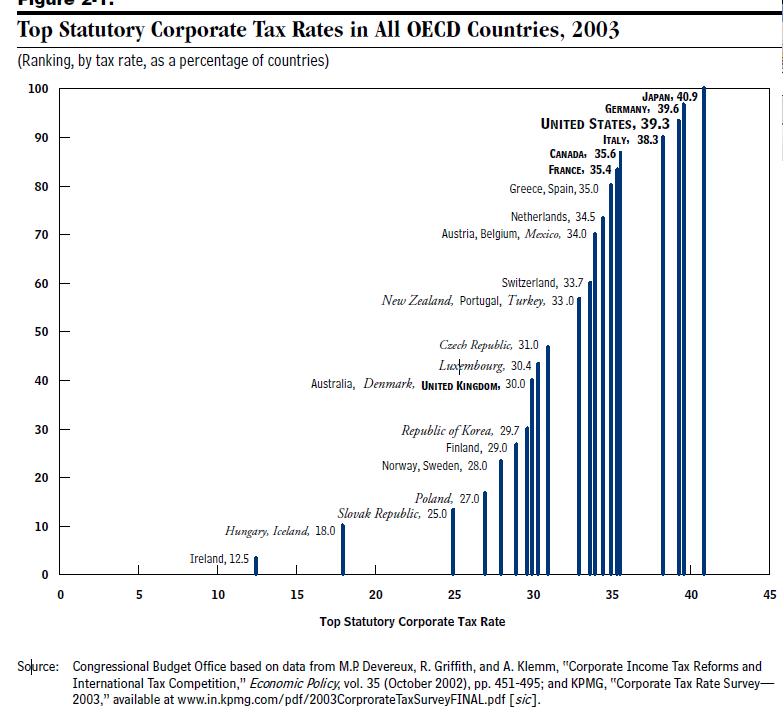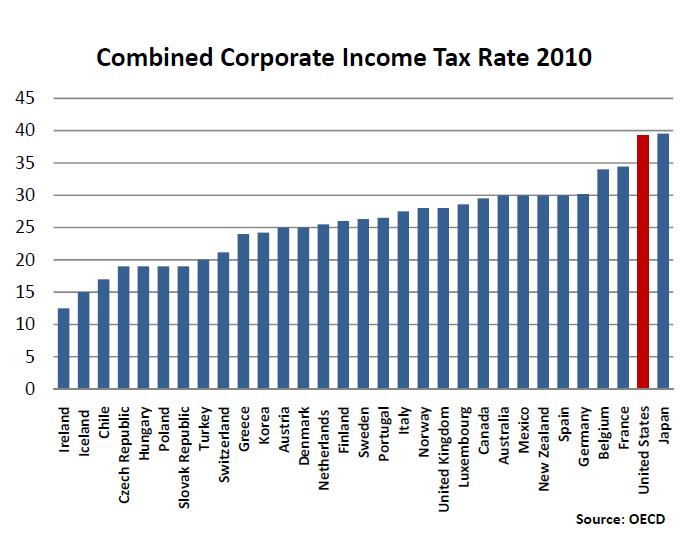I have frequently heard claims that US companies pay significantly less taxes than European ones (based on tax rates). The last time I saw this claim (and what caused me to ask this question) was Lagerbaer's comment on "Do rich companies really pay little/no corporate income taxes in the United States?" question:
By European standards, they'd pay "next to no taxes" even if they'd pay their taxes :-P
However, I'm skeptical of that claim since US has a fairly high top rate of 35% (IIRC) and I have a feeling that the claim I outlined above is mistakenly projected from personal income tax rates.
Could someone please indicate if I'm correct in my skepticism of the claim above?
Please note that I'm asking about standard tax rates, NOT effective taxes paid based on all sorts of accounting gimmicks/loopholes/etc...




